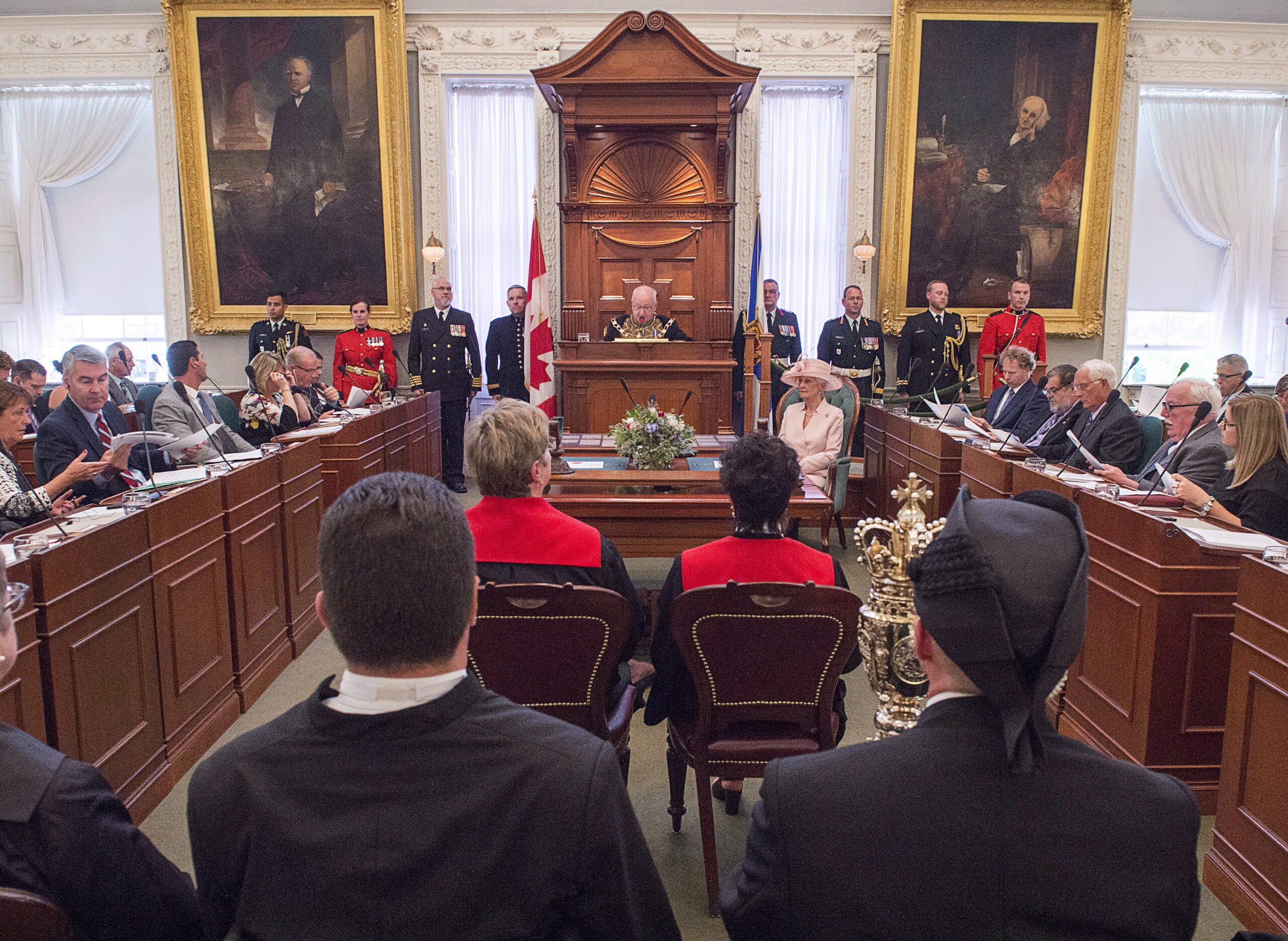The NDP’s bill to ban government funding for gay conversion therapy will be front-and-centre when the Nova Scotia house of assembly resumes Sept 6, 2018.
In July, the NDP released a statement saying it would bring forward a bill to protect LGBT youth by banning conversion therapy in the province. The passing of the bill would “enact an immediate ban on conversion therapy in Nova Scotia,” the statement read.
Susan Leblanc, member of the legislative assembly who serves as the representative for Dartmouth North and the LGBT spokesperson for the provincial NDP, says the issue first appeared on the party’s radar at the beginning of July.
She says the queer community expressed concerns over info sessions being held in a small community in Nova Scotia by Coming Out Ministries, a group of “redeemed, ex-gay” spiritual leaders who advocate for conversion therapy.
Conversion therapy, also known as reparative therapy, is the practice of trying to change a person’s sexual orientation or gender identity using psychiatric practices. Though it is widely-debunked by the health and medical communities, it is still legal throughout most of Canada. Currently, Ontario and Manitoba are the only provinces that have outlawed conversion therapy on LGBT minors, and Vancouver is the only city to ban the practice.
In the past, conversion therapy was covered under the Nova Scotia provincial health insurance plan, the same way as receiving physiotherapy or having one’s wisdom teeth removed.
Leblanc says the proposed new legislation in Nova Scotia would make it impossible for a medical practitioner or therapist to bill for conversion therapy. “The government would not pay for conversion therapy.”
“We’re doing everything we can provincially to stop [conversion therapy] . . . We don’t want any part of it in Nova Scotia,” she says.
In a statement to Xtra sent on Sept 6, Nova Scotia Justice Minister Mark Furey says, “Nova Scotia does not condone conversion therapy or the idea that anyone from the 2SLGBTIQ+ community requires treatment because of sexual orientation and/or gender identity.”
“Our diversity is celebrated in Nova Scotia and it is one of our greatest strengths,” it continued. “I look forward to introducing legislation during this House sitting that will further protect and uphold the rights of the 2SLGBTIQ+ community.”
Leblanc says the rights of LGBT people in the province have been a priority of the NDP in the past, referencing an act proposed on March 20 to respect gender-neutral identification in Nova Scotia.
Leblanc, who was first elected to House of Assembly in 2017, says her party looked at the rest of Canada to see how other provinces and territories had approached such legislation in the past.
The LGBT community in the province “raised the alarm,” Leblanc says. Pride Halifax and the Youth Project were among the LGBT groups in the province who protested the presentation from Coming Out Ministries in the late spring.
LGBT community member and advocate Madonna Doucette says such legislation “supersedes politics” and is needed in the province to open a conversation on conversion therapy.
“We have to start talking about it,” she says.

Doucette is one of the community educators with the Youth Project, a non-profit organization that works to support LGBT youth.
She says she speaks on behalf of the older generations of queer people who had neither support nor recognition when they were growing up.
“We would like to think that things are so much better nowadays, but there’s still a lot of ‘don’t ask, don’t tell,’” Doucette says.
“Publicly everyone’s okay with the queers but privately, when it’s your own kid or your own parent, a lot of people still struggle with it and that’s what we’re working on.”
Doucette says some of the work done by the Youth Project involves calling on the government to make the province a safer, more accepting place for members of the LGBT community.
Doucette says the organization does a great deal of work within the school systems to establish a spirit of allyship. She adds that professional development is also a priority, such as offering sensitivity training to hospital staff in Cape Breton in order to better prepare them for caring for patients who belong to gender and sexual minorities.
Doucette and Leblanc agree the purpose of the legislation is two-tiered.
“This legislation will shut the door to any sort of financial support for any regulatory organization that’s looking to charge for their services,” Doucette says.
Leblanc says the legislation will also send the message that “there is no need for conversion therapy because being gay or trans or queer is not a problem.” She calls conversion therapy an “unnecessary and dangerous” practice the ban will hopefully put an end to in Nova Scotia.
Doucette echoes this sentiment. “It’s going to save lives,” she says.
While Doucette has never undergone conversion therapy herself, she says she knows several people who have. “It has an incredibly long-lasting effect on the individual. It really damages a person’s self-esteem,” she says.
Conversion therapy is a “persistent exercise in completely invalidating people’s identities, invalidating people’s feelings, [invalidating] people’s entire existences,” she adds. “It’s one of the cruelest things that happen under our noses and nobody talks about it.”
Doucette says she hopes the bill will change that.
In the long-run, Doucette says she hopes this legislation will show that LGBT rights are “fundamental human rights for people in Nova Scotia.”
“Having people as advocates working on behalf of communities out there is how we affect change,” she says.
“We will fight to protect those rights . . . We will not stand for this type of treatment of our population.”
Legacy: September 10, 2018 6:00 pmThis story has been updated to include an inline image.


 Why you can trust Xtra
Why you can trust Xtra


